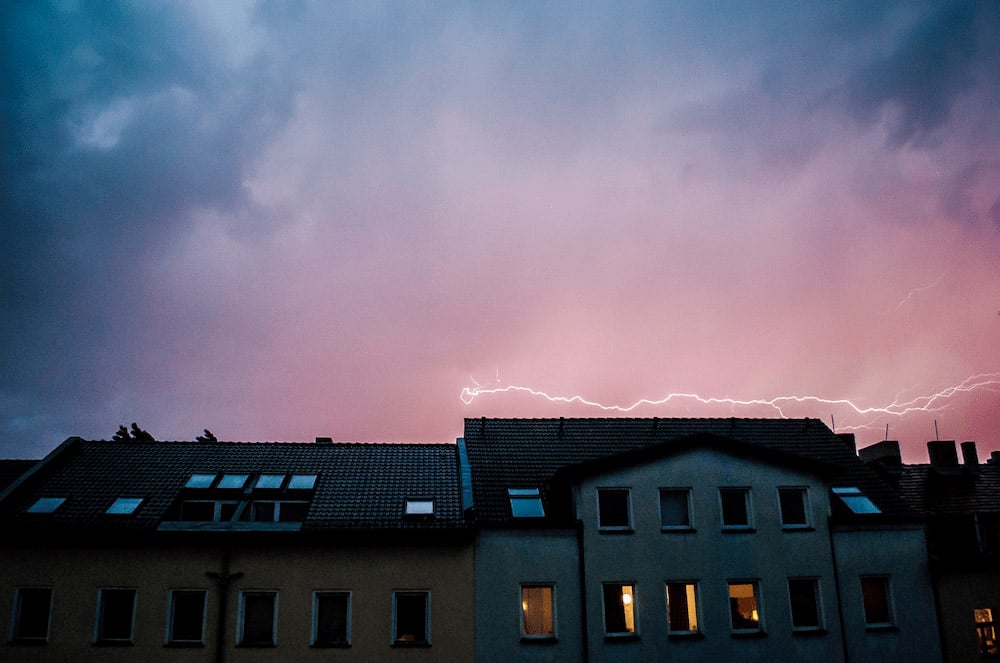Where natural disasters are concerned, any home can suddenly find itself in the path of destruction. However, when your home is your business, this is a huge cause for concern – not only for your vacation rental property but also for your guests’ safety.
Storms, flash-flooding, power outages and fires are just some of the consequences of natural disasters such as earthquakes, hurricanes and tsunamis. Having an emergency plan in place is vital for anybody with a vacation rental business, no matter how low-risk you think your area is.
In the case that disaster strikes, an emergency plan will help protect those who come into contact with your vacation rental – such as yourself, your guests and your staff, as well as anybody who helps out with the disaster response in your area.
Following the steps below will help you to emergency-proof your home and give you peace of mind in any unexpected situation that arises.
1. Create an emergency plan for your vacation rental business
Start by coming up with ideas of all the “worst-case” scenarios that could happen which would impact your guests – and get creative! This could include anything from a minor few-hour power outage to flooding, exterior property damage from fallen trees due to extreme weather, or, in the very worst case, complete destruction of the entire house, fire and so on.
As well as addressing the most likely scenarios for your area (fire, flood, drought etc.), your plan should also include:
- Local emergency numbers
- Your contact information
- A local map
- Information sources i.e. websites, local organizations, radio stations
- Designated meeting place on your property
- Contact numbers for people who speak other languages (if you have a lot of overseas guests)
Identifying these risks helps to protect your business in advance of anything happening. So be sure to include anything that could impact your home, be it natural or man-made. The guide from The Small Business Administration can help your property avoid becoming one of the 25% of small businesses that don’t reopen after a disaster.
2. Get the right insurance
Given that these kinds of risks are higher or lower depending on your property’s location, you need a vacation rental insurance policy that will clearly explain what is and isn’t covered for every eventuality.
Even those in very low-risk areas need to have good property insurance with coverage that protects the building and its contents during the day-to-day. Some standard policies may include coverage for property damage caused by extreme weather, such as broken windows, but they may not extend to flooding, for example.
Based on your property’s whereabouts and the associated risk, natural disaster insurance may also be a requirement for homeowners. Be sure to read around the topic thoroughly before deciding on the policy for your vacation rental.
In addition to insurance, it’s important to keep hold of dated photos of your property and everything valuable it contains – just in case they are needed as evidence for your claims, should damage occur.
“Our vacation rental was unfortunately in the path of Hurricane Michael. While the house itself is in great shape, about a foot of water got into the house and garage so now we’re in the process of starting over with the interior. Thank goodness for the photos on our website though, because we can use them for our insurance claims.” – Doug, owner of Pearl Cottage on the Bay.
3. Provide supplies and a first aid kit
Even without the risk of natural disasters, a first aid kit is an essential amenity for any vacation rental property. You can purchase ready-made kits from stores, or put one together yourself.
In the case that storms or other disasters are forecasted, add 72-hour emergency supplies to the kit. For example:
- Two additional liters of water per person per day (for cooking and cleaning)
- Candles and matches or lighter
- Flashlights and batteries
- Spare clothing/footwear
- Sleeping bags or warm blankets (enough for maximum occupancy)
- Toiletries like hand sanitizer, toilet paper, wipes
- Utensils
- Garbage bags
- Water purifying tablets
- Basic tools such as a hammer, pliers, wrench, screwdrivers, work gloves, pocket knife
- Small fuel-operated stove and fuel
- Whistle to attract attention
- Duct tape
4. Communicate with guests
You can save time and stress by preparing an email template ahead of time with all the relevant instructions in case of an emergency, such as an evacuation order. Think about all the things your guests will need to know. In general, this will be the same information you have previously come up with in your emergency plan, such as local authority emergency contact details, evacuation routes, instructions on where supplies are stored and information on staying safe.
If a storm or other natural disaster is due to hit your location, send this email to any guests who are currently staying at your vacation rental. If the warning comes before guest check-in, it is worth assessing the potential risk and, if it’s deemed too great, canceling the reservation and offering a suitable alternative.
It’s wise to include a cancelation or curtailment policy in your emergency plan, as to avoid guest disputes further down the line (such as those who demand a full refund for being without power for a couple of hours).
There are many preventative measures you can take in order to emergency-proof your vacation rental. That said, even building your home with fire-resistant materials, or fortifying it against disaster cannot guarantee 100% that emergencies won’t occur. Being prepared for the worst is your best bet for protecting your property and your guests from as much disruption and damage as possible.


